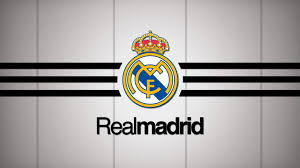
Real Madrid FC
Real Madrid FC is one of the most iconic and successful football clubs in the history of the sport. Known globally for its rich history, star-studded squads, and record-breaking achievements, Real Madrid stands as a symbol of excellence, glamour, and relentless pursuit of victory. The club’s influence extends beyond just football; it embodies a cultural phenomenon that spans continents, creating a legacy that continues to inspire millions of fans worldwide 69VN.
In this comprehensive exploration, we delve into the depths of what makes Real Madrid FC a legendary entity. From its historic origins to its modern-day dominance, every facet of the club will be examined—from its storied past and legendary players to its tactical evolution and global fanbase. Whether you’re a die-hard supporter or a casual observer, understanding the essence of Real Madrid FC reveals why it remains at the pinnacle of world football.
The Historic Roots of Real Madrid FC
Understanding Real Madrid FC begins with an appreciation of its origins and evolution over more than a century. Founded in 1902, the club quickly rose to prominence, fueled by a desire for excellence and a passionate support base. The early years laid the foundation for an illustrious history filled with triumphs, setbacks, and remarkable stories that continue to resonate today.
The Founding and Early Years
The birth of Real Madrid FC was rooted in the vibrant football culture sweeping through Spain in the early 20th century. Established by a group of young enthusiasts led by Juan Padrós, the club initially faced challenges common to nascent teams—limited resources, establishing a competitive identity, and attracting local talent. Yet, their commitment to the sport and community helped them grow rapidly.
In its infancy, the club’s focus was primarily on regional competitions, but the ambition to compete nationally propelled Madrid to the forefront of Spanish football. By the 1920s, Real Madrid FC had secured their first major titles, including multiple Copa del Rey victories, setting the stage for future dominance. The Royal Patronage granted in 1920 further elevated the club’s stature, giving it the “Real” (Royal) prefix, which became synonymous with prestige and recognition.
The Rise to Domestic Dominance
The post-World War II era marked a turning point for Real Madrid FC. With strategic investments, recruitment of top talent, and innovative tactics, the club established itself as a powerhouse within La Liga. The 1950s, in particular, are considered the golden age—especially with the arrival of legendary players and the creation of a team that would revolutionize European football.
During this period, Real Madrid FC won numerous league titles and domestic cups, driven by stars like Alfredo Di Stéfano, Ferenc Puskás, and Francisco Gento. Their style of play combined technical flair with tactical discipline, making them feared opponents on any field. The club’s expanding fanbase and international reputation grew exponentially as they continued to dominate Spanish football.
Transition into International Glory
While domestic success was vital, Real Madrid FC truly cemented its legacy through its performances in European competitions. The inaugural European Cup (now UEFA Champions League) in 1955 proved to be a watershed moment. Under the leadership of President Santiago Bernabéu, the club prioritized continental success, resulting in a record five consecutive European Cups from 1956 to 1960.
This period also saw the development of a distinctive playing philosophy—fast-paced, attacking football complemented by disciplined defending—and an emphasis on nurturing homegrown talent alongside international stars. The club’s ability to blend tradition with innovation set a precedent for clubs across Europe.
Key Milestones and Achievements
Over the decades, Real Madrid FC accumulated a multitude of honors, solidifying their status as Europe’s most successful club. These include:
- Over 30 La Liga titles
- Multiple Copa del Rey trophies
- Numerous UEFA Champions League titles
- FIFA Club World Cup victories
- Other domestic and international honors
These milestones reflect not only the club’s sporting excellence but also its resilience through periods of change and adversity. Each era contributed unique chapters to the club’s story, from the legendary ‘La Quinta del Buitre’ to the modern galácticos phase.
The Cultural and Social Impact
Beyond the trophies, Real Madrid FC has played a significant role in shaping Spanish culture and fostering a sense of identity. The club’s emblematic players, memorable matches, and iconic stadium—Santiago Bernabéu—have become symbols of pride and unity for millions. The club’s fanbase extends far beyond Spain, transcending boundaries and cultures, making it a true global phenomenon.



